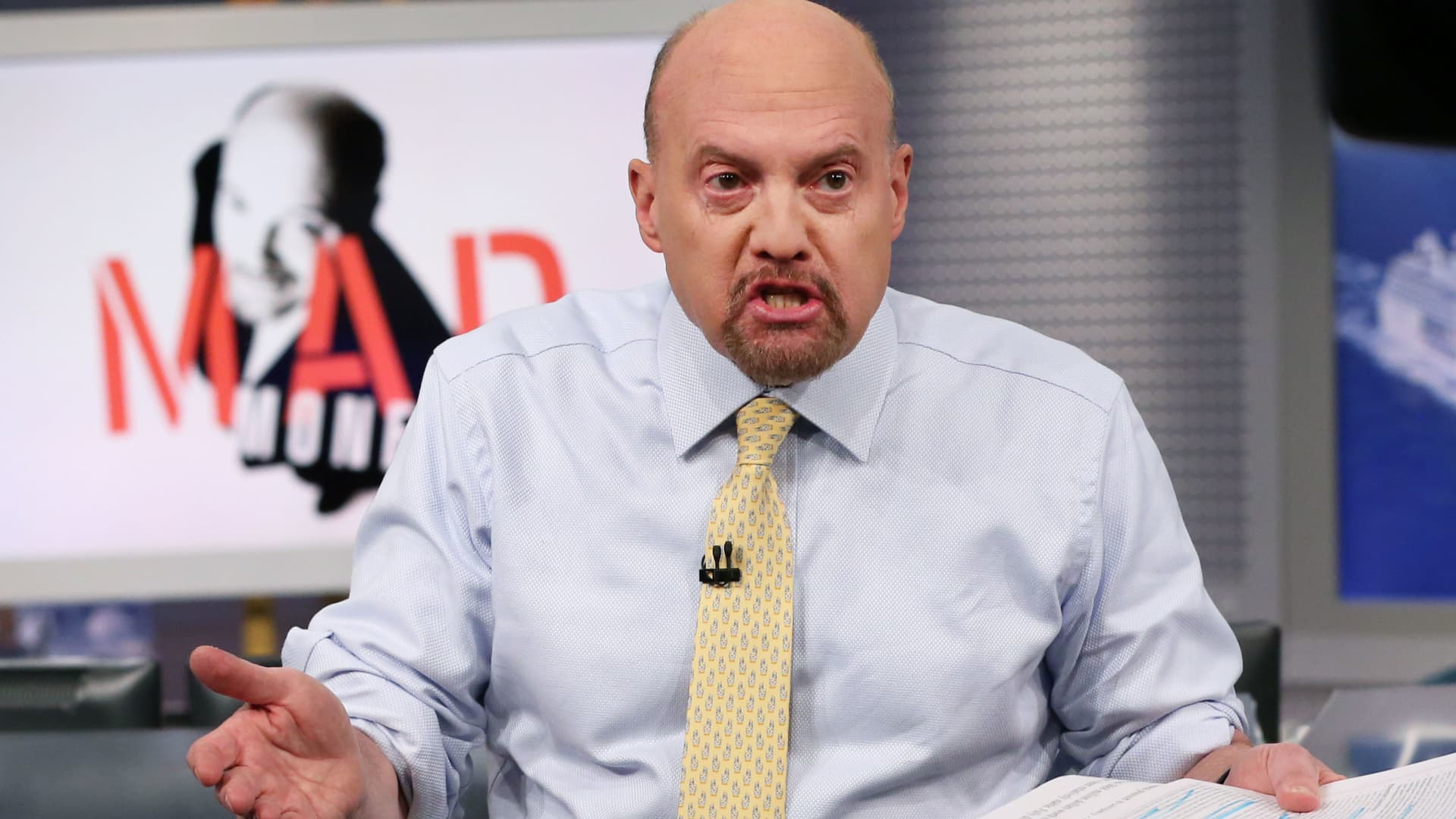
CNBC’s Jim Cramer on Thursday advised investors to invest in profitable companies if the Federal Reserve institutes a half-point double rate hike, using an analysis of the Fed’s last double rate hike and its aftermath in 2000.
“We know what works when the Fed tightens aggressively. The lesson of 2000 is to stick with profitable companies with real products or services that also have meaningful dividends and buybacks, and to sell the rest,” he said.
The “Mad Money” host’s comments come after traders predicted half-point rate hikes in May and June in response to Federal Reserve Chairman Jay Powell’s pledge on Monday to take strong action against surging inflation.
The Dow Jones Industrial Average rose 1% on Thursday while the S&P 500 gained 1.4%. The Nasdaq Composite climbed 1.9%.
Cramer noted that when then Fed Chair Alan Greenspan implemented a double rate hike in May 2020, the dotcom bubble had burst two months earlier. The Fed had already raised interest rates five times over the previous 11 months, with the May interest rate concluding the tightening cycle, he said.
The Nasdaq lost 78% of its value from its peak in March of that year to October 2002, with 60% of the loss happening after Greenspan implemented a double rate hike, according to Cramer. The S&P 500 fell 50% from its peak with almost 90% of its decline coming after the rate hike while the Dow Jones Industrial Average went down 39% from its high with 80% of the decrease coming after the hike, Cramer said.
Some winners included healthcare, energy and financial stocks, while tech stocks plummeted due to the burst of the dotcom bubble, he added.
However, the host reminded viewers that there are outside factors that make both the current markets and the markets in 2000 unique and not directly comparable, including the current Russia-Ukraine war and the recession in the early 2000s.
“I don’t think we’re watching a one-to-one replay of the dotcom collapse. … But it wouldn’t surprise me if the averages experience more pain between now and the next Fed meeting in early May, especially the unprofitable companies in the tech-heavy Nasdaq,” he said.
Sign up now for the CNBC Investing Club to follow Jim Cramer’s every move in the market.
Disclaimer
Questions for Cramer?
Call Cramer: 1-800-743-CNBC
Want to take a deep dive into Cramer’s world? Hit him up!
Mad Money Twitter – Jim Cramer Twitter – Facebook – Instagram
Questions, comments, suggestions for the “Mad Money” website? [email protected]






